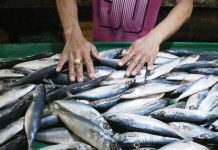
[av_one_full first min_height=” vertical_alignment=” space=” custom_margin=” margin=’0px’ padding=’0px’ border=” border_color=” radius=’0px’ background_color=” src=” background_position=’top left’ background_repeat=’no-repeat’ animation=”]
[av_heading heading=’ASEAN eyes reg’l cooperation for good regulatory practices’ tag=’h3′ style=’blockquote modern-quote’ size=” subheading_active=’subheading_below’ subheading_size=’15’ padding=’10’ color=” custom_font=”]
By ADRIAN STEWART CO
[/av_heading]
[av_textblock size=” font_color=’custom’ color=”]
Friday, March 24, 2017
[/av_textblock]
[av_textblock size=” font_color=” color=”]
Manila – Delegates from Association of Southeast Asian Nation (ASEAN) member countries pointed out the importance of regional cooperation to maintain and improve good regulatory practices within and among nations.
This was conveyed during the third ASEAN-OECD Good Regulatory Practice Network meeting, hosted by the National Economic and Development Authority (NEDA) and co-chaired by the Malaysia and New Zealand governments at the Iloilo Convention Center.
“There is a demand for a concerted regional level of coordination and cooperation for administrative simplification to enable the GRP agenda. Thus, we must find a way to connect this to our common regional work plan,” said Socioeconomic Planning Secretary Ernesto M. Pernia.
The meeting aimed to identify the challenges faced by small and medium enterprises (SMEs), and allowed the ASEAN GRP Network to explore ways to link them with global value chains (GVCs) through easing regulatory burden and simplifying administrative processes within the ASEAN.
The challenges identified were as follows:
*no dedicated government agency (in some countries) that assists SMEs in business registration,
*faulty licensing systems
*overlapping functions between various government agencies
*lack of awareness of obsolete regulations
*SMEs’ lack of access to financial support leading them to resort to informal sources
*lack of access to computers, rendering a lot of automated registration processes ineffective, among many others
The meeting also provided a venue for different ASEAN governments to share regulatory challenges as well as regulatory best practices.
Guillermo “Bill” Luz, who is private sector co-chairman of the Philippine National Competitiveness Council (NCC), shared the country’s efforts in easing regulatory burden for investors and to promote competitiveness among businesses.
One initiative of the NCC is Project REPEAL, a project that allows government agencies, business organizations and individuals to identify regulations and laws that they find burdensome and unnecessary. These are reviewed by a technical working group, and are submitted back to agencies for proper action.
So far, a total of 22,599 rules and regulations have already been submitted for review, of which 3,765 have already been acted on. Eighty government agencies are currently on board.
“Strategies will include building and enhancing the capacity of ASEAN countries for GRP implementation, and learning how to market GRP to our stakeholders. We will also have to actively engage the private sector, local governments, and businesses in streamlining processes
and enhancing good regulatory practices in our countries,” said Pernia.
“Good regulatory practice is central in the ASEAN, and is crucial in fostering connectivity within the region. We firmly believe that there are potential opportunities for ASEAN SMEs to be part of and benefit from the global value chains if regulatory constraints are correctly addressed,” he added.
The meeting was attended by 80 delegates from different ASEAN member states./PN
[/av_textblock]
[/av_one_full]



